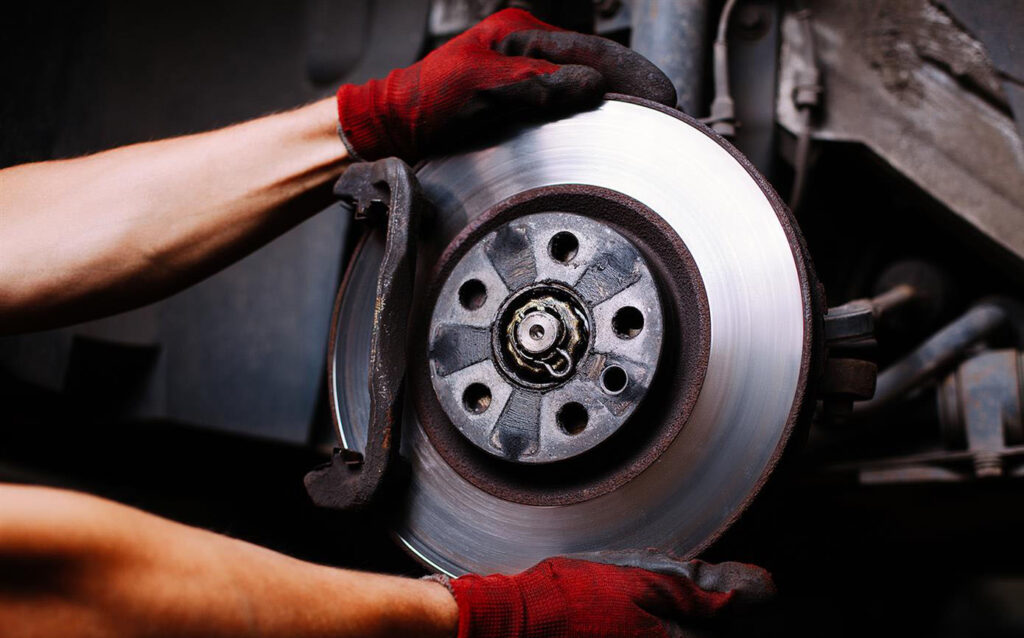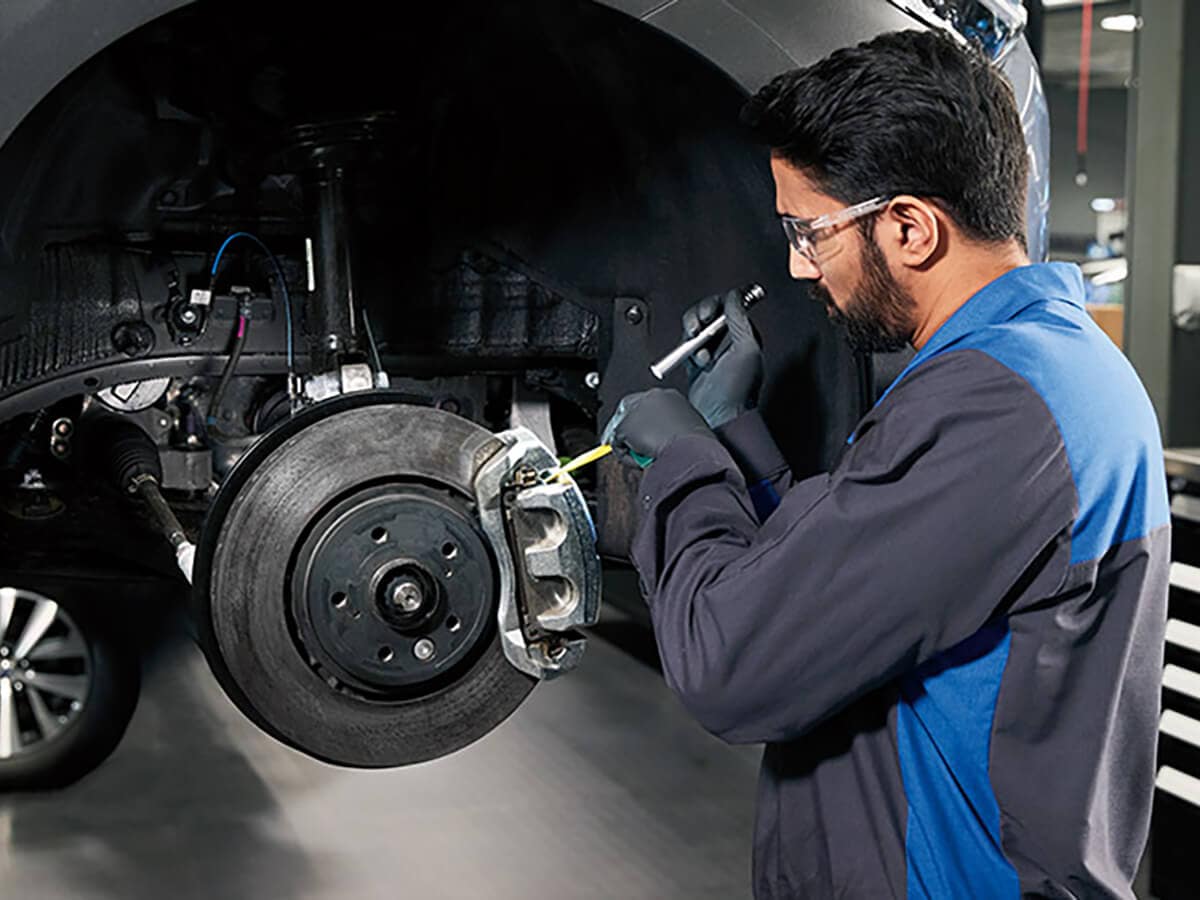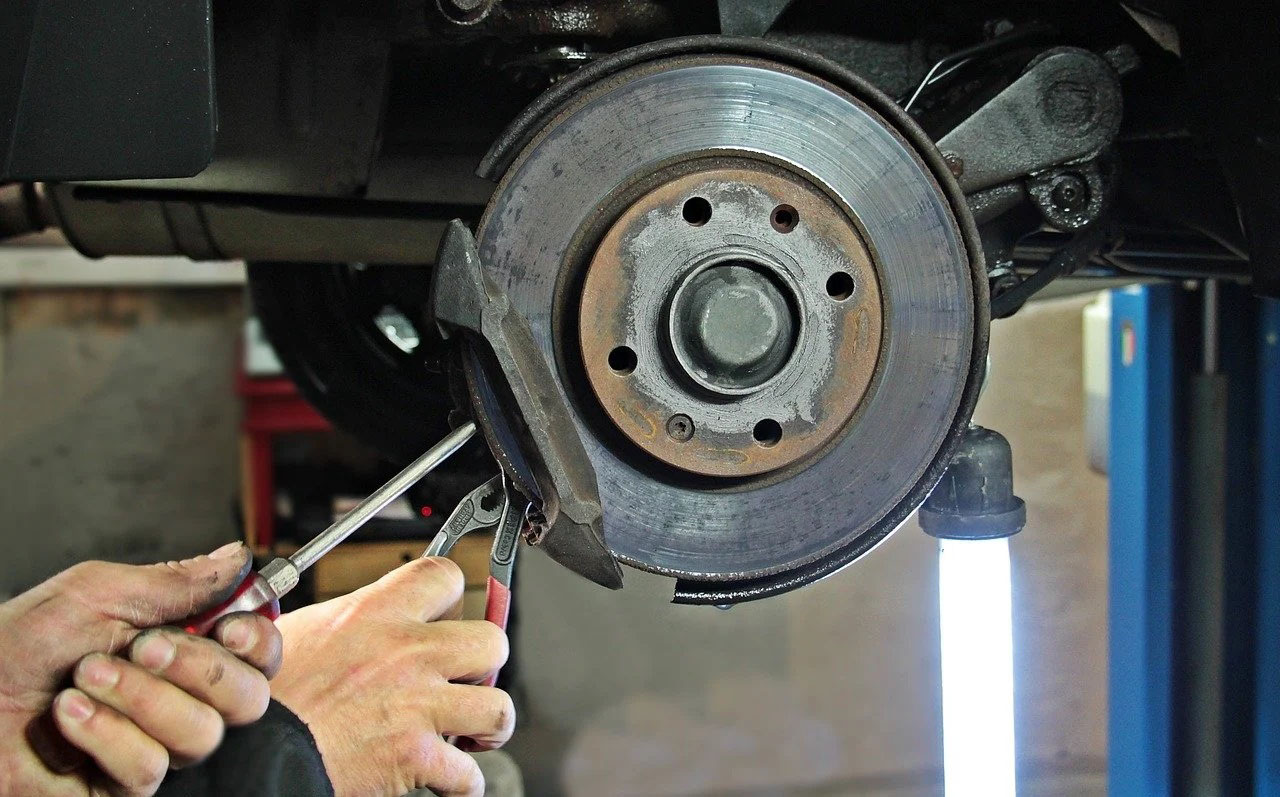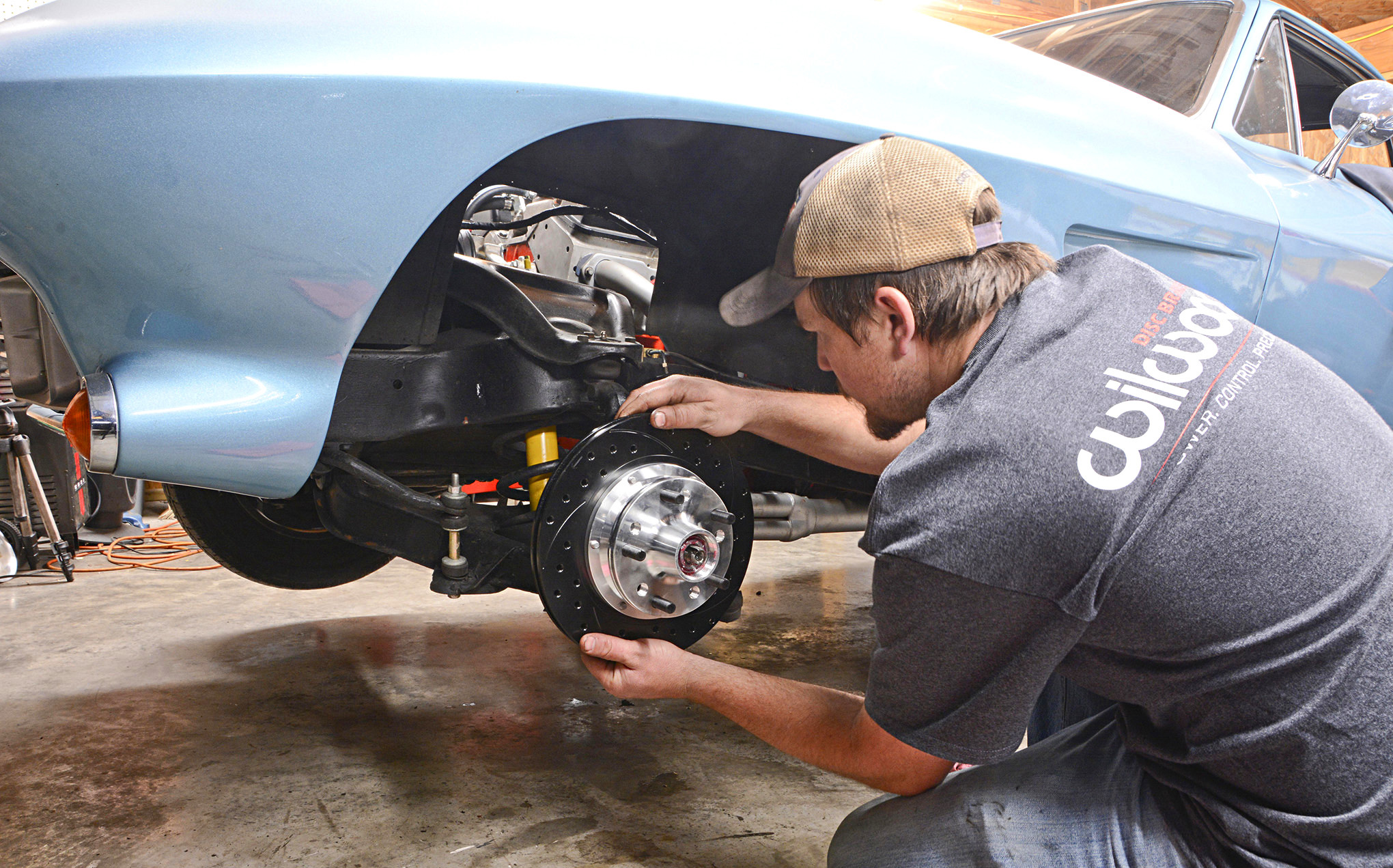You’re working on your car and wonder, “Can I use Super Lube on brake pads?” Super Lube is a popular lubricant for many automotive parts. This article will guide you through the right ways to maintain your brakes safely using Super Lube and other products.
Keep reading to learn more.
Table of Contents
ToggleWhat is Super Lube?
Super Lube is a type of synthetic lubricant known for its wide use in different tools and machines. It has special parts that help it work well in many conditions without breaking down.
Composition and Properties of Super Lube
Super Lube is a mix of synthetic oils and thickeners. These ingredients make it stable at high temperatures and help it stick to surfaces well. It also has PTFE, a kind of Teflon, which reduces friction.
This makes parts move smoothly against each other without wearing out fast. Super Lube works in both cold and hot environments, making it great for many uses.
You might have used Super Lube for DIY car repair or maintenance before. Its ability to not wash off easily and resist dust and dirt is impressive. People choose it because it’s safe on all types of metals, rubber, plastic, and even wood. Plus, its food-grade rating means you can use it in kitchens too without worrying about safety.
Common Automotive Applications of Super Lube
Super Lube finds its place in many car parts beyond the brakes. You can use it on door hinges to stop squeaks and make sure they open smoothly. It also works well on window tracks, making windows easier to roll up and down.
Under the hood, Super Lube protects battery terminals from corrosion, keeping your car starting easily even in cold weather.
For DIY brake maintenance, Super Lube is good for caliper pins and bushings. These parts need to stay lubricated for the brakes to work right. Just be careful to keep it off the brake pads themselves.
Super Lube helps these parts move freely, ensuring your vehicle stops when you need it to without noise or extra wear.
Why Lubricants Should Not Be Applied to Brake Pads
Putting lubricants on brake pads can make them work worse. This can also be dangerous because it changes how your car stops.
Impact of Lubricants on Braking Performance
Lubricants like Super Lube can harm your brakes. If you put them on brake pads or rotors, they reduce the grip. This makes stopping your car take longer. Imagine trying to stop quickly in an emergency but sliding instead.
That’s what happens with lubricant on brake parts.
Lubricants may help parts move smoothly, but brakes need friction to work.
I found this out myself when working on my own car. After using a bit of grease by mistake, my rear disc brakes felt weak. I had to clean everything to fix it. Safety comes first, so always keep lubricants away from where they shouldn’t be.
Risks of Using Lubricants on Brake Pads and Rotors
Applying lubricants to brake pads and rotors poses risk. These components require firm traction for your car to halt safely. Should you introduce a slick substance like Super Lube, the brake pads might fail to grasp the rotor as necessary.
Such a situation prolongs the stopping duration, thus posing a risk.
There are further safety risks affiliated with using inappropriate products in brakes. For example, certain lubricants might ignite under intense heat, a frequent occurrence in brakes.
Some might even deteriorate rubber elements in the braking system over time. Utilizing silicone or dielectric grease instead of products designed for high temperatures and friction surfaces might cause brake failure or expensive repairs.
Ensure to choose the correct product for each section of your vehicle’s brake system to maintain its optimal and safe operation.
Safety Concerns and Potential Hazards
Putting Super Lube on brake pads can harm your car’s stopping power. Your brakes work by creating friction, and lubricants make surfaces slippery. This slipperiness reduces the grip needed for safe stopping, raising the chances of accidents.
I found out the hard way when applying Super Lube to my brake pads led to a scary moment in traffic. My car took much longer to stop, almost causing a crash.
Lubricants like Super Lube also attract dirt and dust on brake components, wearing them down faster. Over time, this buildup damages parts like calipers and rotors, leading to costly repairs.
Safety is key when you’re driving; using products like Super Lube in ways they’re not intended for puts everyone at risk.
Where to Use Super Lube in the Brake System
Super Lube has its place in the brake system, but not on all parts. Use it wisely on caliper slider pins and for stopping squeaks between some metal parts, but keep it away from places where friction is key for safety.
Lubricating Brake Caliper Pins
Lubricating brake caliper pins is key to your vehicle’s safety and brake functioning. This process ensures that the caliper moves freely, improving your car’s stopping power.
- Gather your tools: You’ll need Super Lube, gloves, a clean rag, and a tool to remove the pins.
- Lift your car: Use a jack to raise the vehicle safely off the ground and secure it with stands.
- Remove the wheel: Take off the wheel to access the brake caliper.
- Spot the caliper pins: These are located at the ends of the brake caliper.
- Pull out the pins: Use your tool to carefully remove them from the caliper.
- Clean each pin: Wipe them down with your rag to remove old grease and dirt.
- Apply Super Lube sparingly: Put a thin layer of lubricant on each pin. Don’t use too much.
- Put back the pins: Slide them into place in the brake caliper.
- Check movement: Ensure that they slide in and out smoothly without resistance.
- Replace the wheel and lower your car: After lubricating, put everything back together.
Following these steps helps maintain optimal brake performance and vehicle safety. Make sure you do this maintenance regularly as part of DIY brake care tips with Super Lube for lubrication products compatibility and effectiveness in drum brakes, parking brakes, and more within Avalon models or similar vehicles.
Anti-Squeal Applications
Super Lube can play a vital role in preventing your brakes from making that annoying squealing noise. Apply it to the back of brake pads. This helps stop vibrations between the brake pad and the caliper piston or mounting surface.
These vibrations often cause the squealing sound you hear when braking.
Using Super Lube on the non-friction parts of your brake pads can help silence them, ensuring a quieter ride.
Make sure not to get lubricant on the part of the pad that touches the rotor. Keeping these surfaces clean maintains good braking performance and safety while driving.
Avoiding Contact with Brake Pad Friction Surfaces
Keep Super Lube away from brake pad friction areas. These surfaces need to grip the rotor for your car to stop safely. Putting any lubricant here can make your brakes slick. This means your car might not stop when you need it to.
It could lead to accidents.
Apply Super Lube only where needed in the brake system, like on caliper pins or as anti-squeal behind the pads. Avoid getting it on parts that touch the rotor directly. Use tools like a brush or applicator stick for precise application.
This prevents spills onto critical braking surfaces, ensuring safety and maintaining proper braking function.
Alternative Lubricants for Brake Components
Explore other greases and pastes for your brake parts. These can keep parts moving well without harming them. Some good choices are silicone-based grease, copper anti-seize for hot spots, and ceramic brake pastes.
Each has its place in keeping brakes quiet and functional. Look into these options to find the best one for your car’s needs.
Silicone-Based Brake Grease
Silicone-based brake grease serves an essential function for your brake system’s health, promoting smooth parts movement and shielding them from premature wear or sticking. Unlike its counterparts, this grease excels in high-temperature environments, a necessary quality considering the substantial heat brakes generate during operation.
This grease variant also promises compatibility with rubber components, which makes it the ideal choice for seals and boots within the brake system.
Implementing silicone-based grease on certain brake components contributes to noise reduction, thus offering a quieter ride. However, be mindful to avoid using it on surfaces where pads make contact with rotors.
Instead, focus on applying it on slide pins and caliper guides to safeguard smooth movements without compromising safety. Consistently adhering to these guidelines will maintain your brakes’ performance and prevent expensive repairs resulting from friction-induced wear or damage.
Copper Anti-Seize for High-Temperature Areas
Copper anti-seize is your go-to for high-temperature areas on brake systems. This type of lubricant can handle heat up to 1800°F, making it perfect for parts that get really hot, like where the brakes are.
People use copper anti-seize to stop parts from sticking together or getting rusty because of the heat and pressure when you brake.
From personal experience, applying copper anti-seize on threads and contact points, but not on friction surfaces of brake pads, ensures everything moves smoothly without any squeaks or rattles.
Make sure you apply it carefully to only recommended spots. This practice extends the life of your brake components by guarding them against corrosion and wear due to extreme temperatures.
Ceramic Brake Lubricants
Ceramic brake lubricants work well on parts that touch but don’t move much. They handle high temperatures without melting away. You can use them on the back of brake pads or where the caliper and pad meet.
This keeps your brakes quiet and smooth.
I tried ceramic lubricant on my car’s brakes last summer. It stopped the squeaking sounds and made braking smoother, even in hot weather. The lubricant was easy to apply and lasted a long time.
Using it makes DIY brake maintenance easier for you too.
Conclusion
You should not use Super Lube on your brake pads. It can harm how well your brakes work and is not safe. There are better choices to keep your brakes in good shape, like silicone-based grease or copper anti-seize for hot parts.
Always make sure you put the right stuff in the right spot to avoid trouble and keep your car running safely. Use care when working on your brakes and choose products made for them.
FAQs
Is it safe to use Super Lube on brake pads?
Using Super Lube on brake pads is not typically recommended as its compatibility with the materials of brake components may not be ideal. It’s crucial to always prioritize safety when considering DIY brake maintenance.
What effects can Super Lube have on my brake pads?
While some lubricants might reduce squeaking, using a product like Super Lube could potentially interfere with the friction needed for proper braking function. Always check lubricant compatibility before application.
Are there alternatives to Super Lube for brakes?
Yes, there are specialized products designed specifically for lubricating brake parts that would serve as better alternatives than food grade or general-purpose lubricants like Super Lube.
Can I perform DIY maintenance on my brakes using Super Lube?
Performing DIY maintenance requires careful consideration and knowledge of each component’s needs and functions, including your brakes. While you might use certain types of lube in some cases, it’s essential to understand that incorrect usage could compromise your vehicle’s safety.




